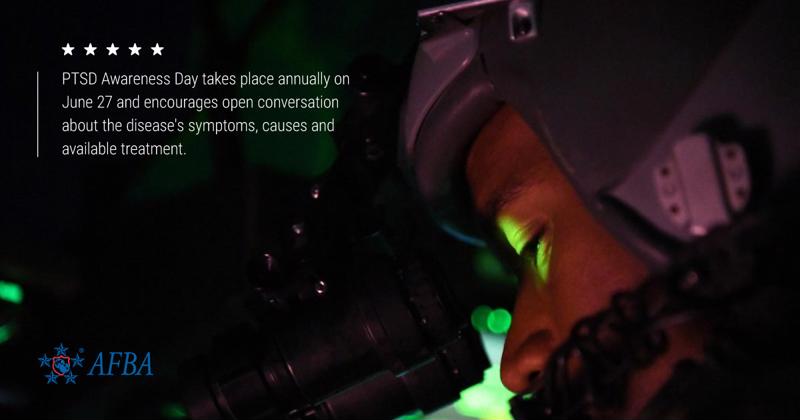Posttraumatic stress disorder, also known as PTSD, is a mental disorder that can develop after someone has been forced to experience a traumatic event, such as the conditions of battle and warfare. Although a psychological condition, there are severe physical risks associated with PTSD, as sufferers are at a heightened risk of self-harm and suicide.
Good mental health has always been one of the first casualties of war, but society's understanding of PTSD has changed considerably over the years. In World War I, soldiers suffering from various nervous and mental symptoms were said to be suffering from "shell shock." In World War II, the diagnosis was changed to "combat stress fatigue."

PTSD became an official psychiatric diagnosis in 1980, which was strongly influenced by the experiences and conditions of U.S. military veterans of the Vietnam War. A study conducted in the late 80s determined 15% of Vietnam veterans were suffering from PTSD, and today the VA estimates that 30% of Vietnam vets have had PTSD at some point in their lifetime.
About 12% of Gulf War veterans have PTSD, while somewhere between 11 and 20% of soldiers who fought in Operations Iraqi Freedom and Enduring Freedom are estimated to be afflicted with the condition.
These numbers are alarming, and speak to the importance of providing mental health resources to our nation's soldiers. And on June 27, advocates are especially emphatic in making that point.
How to advance the cause of PTSD awareness
PTSD Awareness Day can trace its origins back to the tragedy of Staff Sergeant Joe Biel, a North Dakota National Guard member who took his own life in 2007 following two tours in Iraq. SSgt. Biel, who suffered from PTSD, committed suicide after his return from duty to his home state.
In 2010, Senator Kent Conrad led the effort to get official recognition of PTSD via a "day of awareness," and SSgt. Biel's birthday, June 27, was chosen as the official PTSD Awareness Day, according to Military Benefits. In 2014, the Senate expounded upon the annual observance by designating the full month of June as National PTSD Awareness Month.
Today, individuals primarily observe PTSD Awareness Day by encouraging open conversations about the disorder, with frank and informative discussions of its causes, symptoms and available treatment methods. Despite the fact that it has been an official medical diagnosis for nearly four decades, PTSD is still frequently misunderstood, particularly by those who have only seen it portrayed in movies and other pop culture dramatizations.
To aid in this effort, the Department of Defense publishes circulars, articles and other materials designed to better educate and inform military members and their families about PTSD. Furthermore, the VA's website has lots of articles and resources dedicated to PTSD, and when retiring military members fill out their VA claim forms, there is an option to be evaluated for PTSD.
If you or someone you know is potentially suffering from PTSD, it's important to look for the warning signs. Though not always the case, common non-specific symptoms include irritability, depression and, particularly prevalent in veterans and active military members with the condition, something known as "hypervigilance" or "hyperarousal." Repeatedly experiencing a traumatic event through flashbacks, nightmares and persistent memories is another symptom of PTSD. The biggest red flag is suicidal ideation, and anyone experiencing such thoughts should immediately seek help.
The mental scars accrued in combat are often far more difficult to heal than the physical wounds, but there is always hope for recovery. PTSD Awareness Month is the perfect time to make sure that message reaches everyone who needs to hear it.


